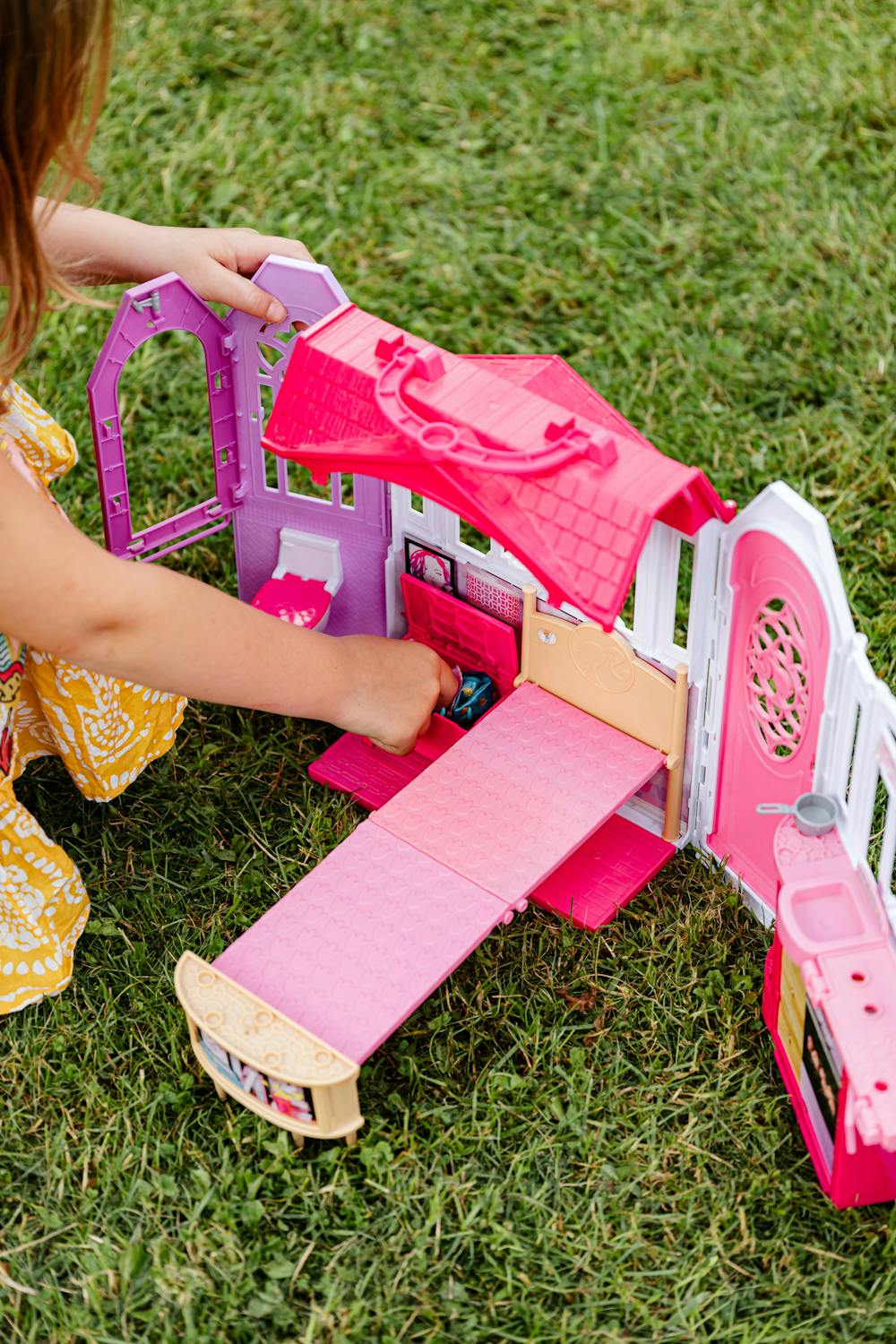Ruth Handler, Creator of Barbie

Ruth Handler's name might not be as universally recognized as the iconic doll she created, but her impact on popular culture is undeniable. As the co-founder of Mattel and the visionary behind Barbie, Handler revolutionized the toy industry and left a lasting legacy that continues to inspire children and adults alike. Her journey from a young entrepreneur to an industry pioneer is a testament to innovation, perseverance, and an unyielding belief in the power of imagination.
Born in 1916 in Denver, Colorado, Ruth Handler was a natural-born entrepreneur with a keen eye for opportunity. Alongside her husband, Elliot Handler, she co-founded Mattel in 1945. Initially focusing on picture frames, the company soon ventured into the toy market, a decision that would change the landscape of children's entertainment forever. Ruth's creation of Barbie in 1959 marked a significant departure from the traditional baby dolls that dominated store shelves. Instead, Barbie represented a new world of possibilities, embodying various roles and careers that allowed children to dream big.
The inspiration for Barbie came from Ruth's observation of her daughter Barbara playing with paper dolls. She noticed that Barbara often imagined these dolls in adult roles, unlike the baby dolls available at the time. This insight led to the creation of a three-dimensional adult-like doll that could serve as a role model for young girls. The first Barbie doll debuted at the American International Toy Fair in New York City and was an instant success. Over the years, Barbie has evolved to reflect changing societal norms and career aspirations, cementing its place as a cultural icon.
Early Life and Career Beginnings
Ruth Handler's early life was marked by entrepreneurial endeavors. Growing up in Denver, she displayed a knack for business from a young age, selling products door-to-door and managing various small ventures. Her marriage to Elliot Handler proved to be a partnership not just in life but also in business. Together, they founded Mattel Creations in their garage, starting with picture frames before pivoting to toy manufacturing.
Mattel's initial foray into toys began with simple products like toy ukuleles and music boxes. However, it was Ruth's innovative mindset that propelled the company forward. She identified gaps in the market and capitalized on them, leading to significant growth and recognition for Mattel. By the mid-1950s, Mattel had established itself as a major player in the toy industry.
The Birth of Barbie
The idea for Barbie was born out of Ruth's desire to create a doll that allowed girls to envision themselves in various adult roles. Observing her daughter Barbara's play patterns with paper dolls, Ruth realized there was an untapped market for a three-dimensional doll that could embody different careers and lifestyles. This led to the creation of Barbie Millicent Roberts, named after Ruth's daughter.
Barbie's debut at the 1959 American International Toy Fair was nothing short of revolutionary. Unlike traditional baby dolls, Barbie had an adult figure and came with fashionable outfits and accessories. This allowed children to project their dreams and aspirations onto the doll, imagining themselves as doctors, astronauts, or fashion designers. The concept resonated deeply with consumers, leading to immediate commercial success.
Over the years, Barbie has undergone numerous transformations to stay relevant with changing times. From representing diverse ethnicities to showcasing various career paths, Barbie has continually evolved while maintaining its core essence of inspiring imagination and ambition among young minds.
Challenges and Triumphs
Despite her successes, Ruth Handler faced significant challenges throughout her career. In the early 1970s, she was diagnosed with breast cancer and underwent a mastectomy. This personal struggle led her to develop Nearly Me, a line of prosthetic breasts designed to help women regain their confidence post-surgery.
Handler also faced legal troubles related to financial irregularities at Mattel. In 1978, she resigned from her position at the company amid allegations of falsifying financial statements. Despite these setbacks, Ruth remained resilient and continued to contribute to various entrepreneurial ventures.
Her work with Nearly Me demonstrated her unwavering commitment to empowering women and addressing their needs through innovative products. This venture also highlighted her ability to turn personal adversity into opportunities for social impact.
Legacy and Impact
Ruth Handler's legacy extends far beyond the creation of Barbie. Her contributions to both the toy industry and women's health have left an indelible mark on society. Through Barbie, she challenged traditional gender roles and encouraged young girls to dream beyond societal expectations.
Handler's entrepreneurial spirit continues to inspire new generations of business leaders and innovators. Companies like GoldieBlox have followed in her footsteps by creating toys that promote STEM education for girls (GoldieBlox). These modern ventures build on Handler's vision of using toys as tools for empowerment and education.
A Lasting Influence
The story of Ruth Handler is one of vision, resilience, and relentless pursuit of innovation. Her ability to identify market gaps and create products that resonate deeply with consumers remains a guiding principle for entrepreneurs today. The success of Barbie is not just measured by sales figures but by its cultural significance and impact on generations of children worldwide.
Handler's journey serves as a reminder that innovation often comes from observing everyday life and daring to challenge conventions. Her legacy lives on through every child who plays with Barbie and imagines a world without limits.
Ruth Handler's contribution to popular culture through the creation of Barbie is monumental. Her vision transformed not only an industry but also societal perceptions of what women could aspire to be. From humble beginnings in Denver to becoming a household name through Mattel, Ruth's story is one of determination and creativity.
As we reflect on her legacy, it's clear that Ruth Handler was more than just a toy maker; she was a pioneer who used her entrepreneurial skills to make lasting changes in both business and society. Her influence continues to inspire new generations to dream big and break barriers.